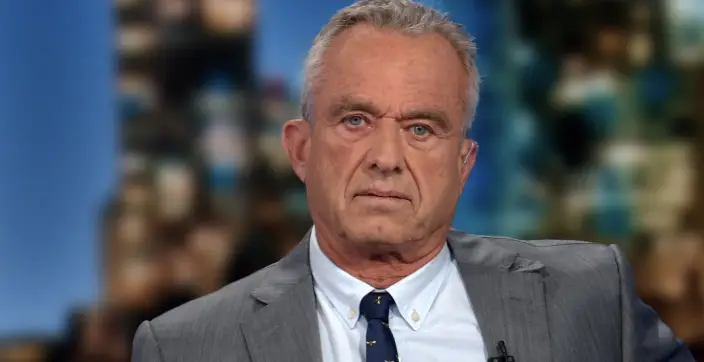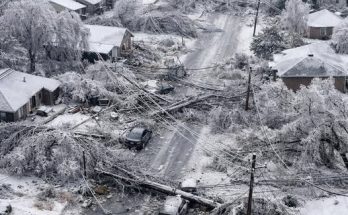Robert F. Kennedy Jr. has announced plans to reveal what he claims are the “causes” of autism at a press conference set for September. The controversial statement follows earlier remarks from Kennedy suggesting that autism spectrum disorder (ASD) is preventable and potentially triggered by environmental factors.
Kennedy, who has served as Health and Human Services Secretary under President Donald Trump since February, initially made the announcement in April. He said that the Department of Health and Human Services (HHS) would be launching a sweeping investigation into the roots of what he called the “autism epidemic,” with assistance from “hundreds” of scientists from across the globe.
In statements made earlier this week, Kennedy reiterated that the project was moving forward and indicated that findings would be shared during a press conference in September. Speaking on 26 August, he said: “We’re finding interventions, certain interventions now that are clearly, almost certainly causing autism. And we’re going to be able to address those in September.”
Autism spectrum disorder is a lifelong developmental condition. According to the Centers for Disease Control and Prevention (CDC), approximately one in 31 children in the United States is diagnosed with ASD, and it is over three times more common in boys than in girls. The condition affects individuals across all socioeconomic, racial, and ethnic backgrounds.
Despite Kennedy’s assertions, there is a broad scientific consensus that vaccinations and other common pharmaceutical interventions do not cause autism. Multiple large-scale studies have repeatedly shown no causal link between vaccines and ASD, with health organisations such as the CDC, the World Health Organization (WHO), and the American Academy of Pediatrics affirming these findings.
Kennedy has long been known for his scepticism of vaccine safety, a position that has drawn sharp criticism from public health experts. His latest claims suggest that an “environmental toxin” may be responsible for the rise in autism diagnoses. “Somebody made it and put that environmental toxin into our air or water or medicines or food,” he alleged earlier this year.
However, CNN Health has reported that the studies Kennedy referenced have not yet begun as of early September, casting doubt on the timeline for the announcement of any findings. Meanwhile, medical experts and disability advocates have raised concerns about the framing and implications of Kennedy’s statements.
Alison Singer, the founder of the Autism Science Foundation, criticised the approach: “It’s highly unusual to announce you have the results of a study before the study even begins.”
Academic voices have also weighed in. M. Remi Yergeau, a professor at Carleton University and Canada Research Chair in Critical Disability Studies and Communication, rejected the premise of Kennedy’s investigation. “Autism is not an epidemic, nor is it a disease, and nor is it preventable,” they said in an interview with PBS. “Discussing autism in such terms is scientifically inaccurate and can dehumanize autistic people and instill fear.”
President Trump has praised Kennedy’s efforts, describing the upcoming press conference as a significant moment for the country. “I’m looking forward to that day, because there’s something wrong when you see the kind of numbers that you have today versus 20 years ago,” Trump reportedly said, according to USA Today. “There has to be something artificially causing this, meaning, a drug or something.”
Kennedy’s framing of autism as a preventable condition has reignited longstanding controversies surrounding the rhetoric used to describe neurodevelopmental disorders. While autism diagnosis rates have risen in recent decades, experts attribute much of this increase to better diagnostic criteria, heightened awareness, and expanded access to screening, rather than a sudden spike in actual cases.
The CDC notes that the shift in numbers is largely due to broader definitions of autism and more robust identification efforts rather than a new environmental or pharmaceutical trigger.
Still, Kennedy has remained resolute in his position, indicating that the forthcoming announcement will provide specific details on the “interventions” he believes are contributing to autism rates. While the precise contents of the press conference remain unknown, the scientific community continues to express scepticism about the validity of any claims suggesting a direct, preventable cause of autism.
Medical professionals have warned that promoting such theories without credible evidence risks spreading misinformation and fuelling anti-science narratives, particularly surrounding vaccine hesitancy. They also stress that referring to autism as a condition to be “cured” or “eliminated” is a harmful and reductive view of neurodiversity.
As the press conference date approaches, critics say that HHS officials should focus on expanding services, support, and understanding for autistic individuals and their families, rather than seeking speculative causes.
Kennedy has not released any official details about the scientists involved, the methods being used, or the peer-reviewed status of the data expected to be presented.
The event is expected to be one of the most closely watched of the month, with both supporters and detractors awaiting further clarification on Kennedy’s claims. Until then, public health officials and autism advocacy groups continue to urge caution and scepticism toward any assertions not grounded in established scientific consensus.



